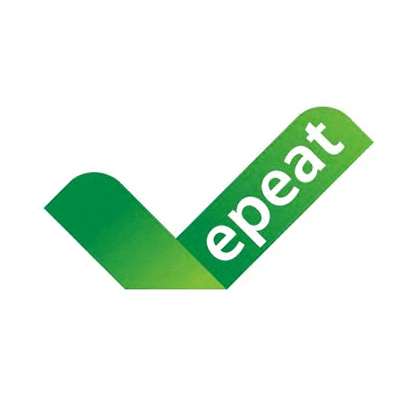 In September, Renee St. Denis, vice president of Sims Recycling Solutions, was chosen by the Green Electronics Council – a non-profit organization managing the EPEAT registry – and NSF International – a third-party auditing and certifying body – to participate in a stakeholder committee tasked with developing criteria for standards to qualify computer servers under the Electronic Product Environmental Assessment Tool (EPEAT) registry. EPEAT a global registry designed through a multi-stakeholder process with assistance from the U.S. Environmental Protection Agency, helps consumers evaluate, compare, and select environmental attributes and performance of electronic products commonly purchased for use in the home or workplace.
In September, Renee St. Denis, vice president of Sims Recycling Solutions, was chosen by the Green Electronics Council – a non-profit organization managing the EPEAT registry – and NSF International – a third-party auditing and certifying body – to participate in a stakeholder committee tasked with developing criteria for standards to qualify computer servers under the Electronic Product Environmental Assessment Tool (EPEAT) registry. EPEAT a global registry designed through a multi-stakeholder process with assistance from the U.S. Environmental Protection Agency, helps consumers evaluate, compare, and select environmental attributes and performance of electronic products commonly purchased for use in the home or workplace.
As a stakeholder involved in the initial development and addition of new product categories of the EPEAT registry since 2005, St. Denis readily accepted the task. “Sims Recycling Solutions offers end-of-life management and take-back services for a number of electronics manufacturers in the United States and around the world,” said St. Denis. “It’s critical that the electronics recycling industry’s perspective be included in the development of standards.” The first computer server stakeholder meeting was held in October and criteria and standards are estimated to be finalized in 2015.
The EPEAT registry currently maintains evaluations of more than 3,000 products from 50 manufacturers from 42 countries. Use of the registry when purchasing certain electronic products is mandatory for U.S. government agencies, many state governments, higher education institutions, and private enterprises. Use of the registry is also mandatory for federal governments in Canada, Australia, France, Poland, Brazil, Costa Rica, and Singapore. In recognition of the broad use of the registry and the competitive advantage it can provide some market places, manufacturers voluntarily submit information regarding their products and company to be evaluated and then possibly listed and ranked on the registry.
Product types currently maintained in the registry include:
- Computers and displays: integrated, non-integrated, and workstation desktop computers, displays, notebooks, thin clients, and tablets
- Imaging equipment: copiers, digital duplicators, fax machines, mailing machines, printers, scanners, and multifunction devices
- Televisions: cathode ray tube (CRT), liquid crystal display (LCD) or plasma monitors
EPEAT registry products are ranked as gold, silver, or bronze based on the performance criteria met. The evaluation criteria for products is broken out into 51 lifecycle or environmental criterion – 23 required and 28 optional – that officially became part of the International Electrical and Electronic Engineers (IEEE) 1680 family of standards in 2006.
Life cycle or environmental criteria that the standards address include:
- Reduction/elimination of environmentally sensitive materials
- Material selection
- Design for end of life
- Product longevity/life extension
- Energy conservation
- End-of-life management
- Corporate performance
- Packaging
- Consumables (unique to imaging equipment standard)
- Indoor air quality (unique to imaging equipment standard)

